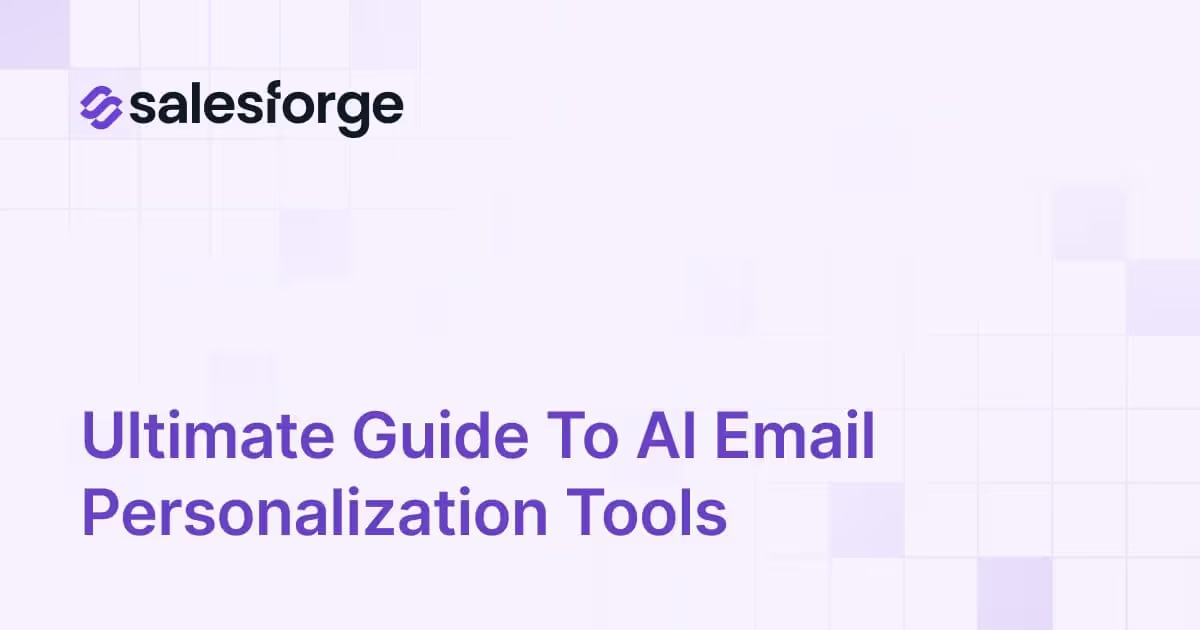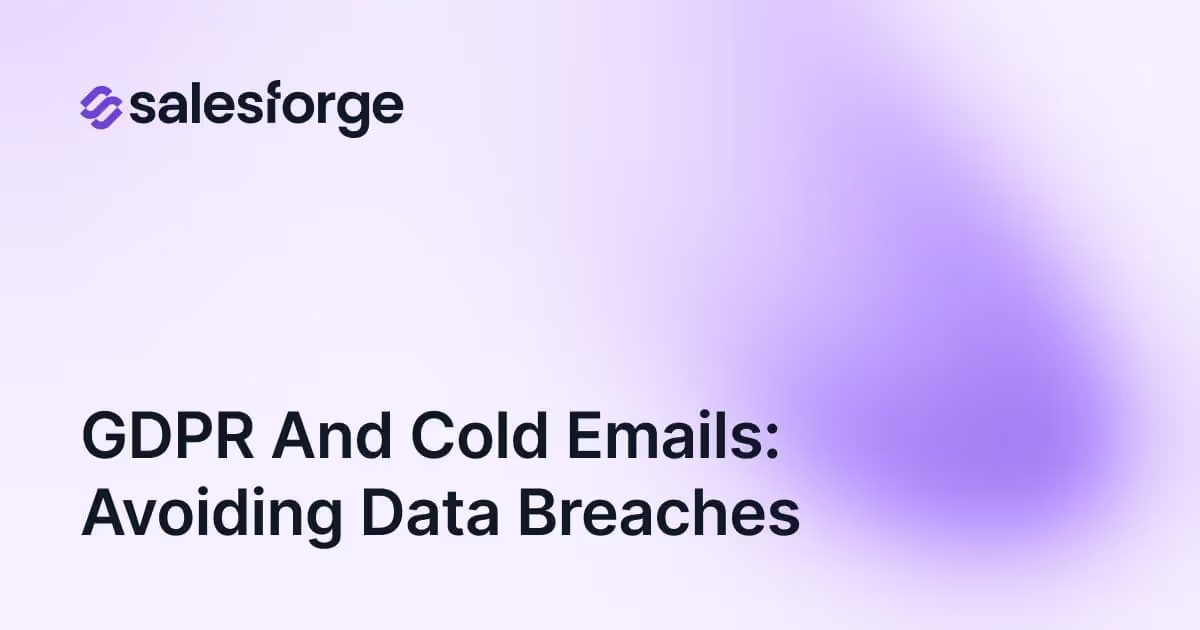More blog posts like this

Ultimate Guide to AI Email Personalization Tools

Customer acquisition is a crucial aspect of any business. It refers to the process of attracting and converting new customers to purchase a product or service. Without a steady stream of new customers, businesses cannot grow and thrive. In today's digital age, there are numerous marketing channels available to businesses, but one stands out as the king of ROI for customer acquisition - email marketing.
Email marketing has proven to be one of the most effective and cost-efficient ways to acquire new customers. It allows businesses to reach a large audience directly in their inbox, delivering personalized and targeted messages. In this blog post, we will explore the power of email marketing in building customer relationships, compare it with other marketing channels, discuss its cost-effectiveness, highlight the importance of personalization, examine its role in lead nurturing and conversion, and explore its impact on customer retention and loyalty. We will also provide best practices for creating effective email marketing campaigns and discuss the future of email marketing in customer acquisition.
Email marketing is a digital marketing strategy that involves sending commercial messages to a group of people via email. It is a direct form of communication that allows businesses to reach their target audience directly in their inbox. Email marketing works by collecting email addresses from potential customers and sending them relevant and engaging content.
The history of email marketing dates back to the early days of the internet. In 1978, Gary Thuerk sent the first mass email to promote his company's products to a list of potential customers. Since then, email marketing has evolved significantly, with advancements in technology and the rise of automation tools. Today, businesses can use sophisticated email marketing platforms to create and send personalized emails to their target audience.
One of the key benefits of email marketing is its ability to build strong relationships with customers. By sending personalized and relevant content directly to their inbox, businesses can establish trust and credibility with their audience. Email marketing allows businesses to stay top-of-mind with their customers, providing them with valuable information, updates, and offers.
There are numerous examples of successful email marketing campaigns that have built strong customer relationships. For instance, clothing retailer J.Crew sends personalized emails to their customers based on their purchase history and preferences. These emails include product recommendations, exclusive offers, and styling tips, which not only drive sales but also make customers feel valued and understood.
Another example is Airbnb, which sends personalized emails to their hosts and guests based on their previous interactions. These emails include personalized recommendations for future trips, reviews from other users, and updates on new features. By providing relevant and personalized content, Airbnb is able to build trust and loyalty with their customers.
While there are various marketing channels available to businesses, email marketing stands out as the most effective for customer acquisition. Let's compare email marketing with other popular marketing channels such as social media, search engine marketing, and direct mail.
Social media platforms like Facebook and Instagram allow businesses to reach a large audience, but the engagement and conversion rates are often lower compared to email marketing. With email marketing, businesses can send targeted messages directly to their audience's inbox, resulting in higher open rates and click-through rates.
Search engine marketing, such as Google Ads, can be effective in driving traffic to a website, but it can be costly and competitive. Email marketing, on the other hand, allows businesses to reach their audience at a lower cost and with more control over the messaging.
Direct mail can be effective in reaching a specific audience, but it is expensive and time-consuming. Email marketing offers a more cost-effective and efficient way to reach a large audience with personalized messages.
One of the key advantages of email marketing is its cost-effectiveness compared to other marketing channels. Email marketing allows businesses to reach a large audience at a fraction of the cost of traditional marketing methods.
For example, a business can send thousands of emails to their target audience for a fraction of the cost of printing and mailing direct mail pieces. Additionally, email marketing platforms offer automation features that allow businesses to send personalized emails at scale, saving time and resources.
There are numerous examples of businesses that have saved money by using email marketing for customer acquisition. For instance, online retailer ASOS reduced their customer acquisition costs by 22% by using email marketing to target specific segments of their audience. By sending personalized emails with relevant product recommendations, ASOS was able to drive higher conversion rates and reduce their overall marketing spend.
Personalization is a key factor in the effectiveness of email marketing. By tailoring the content of emails to individual recipients, businesses can increase engagement and conversion rates. Personalization can be as simple as addressing the recipient by their name or as complex as sending customized product recommendations based on their purchase history.
There are numerous examples of successful email marketing campaigns that have used personalization to drive results. For instance, Amazon sends personalized emails to their customers with product recommendations based on their browsing and purchase history. These emails include personalized subject lines, product images, and offers, which result in higher open rates and click-through rates.
Another example is Spotify, which sends personalized emails to their users with curated playlists based on their music preferences. These emails include personalized subject lines, album artwork, and song recommendations, which not only drive engagement but also make users feel valued and understood.
Email marketing plays a crucial role in lead nurturing and conversion. By sending targeted and relevant content to leads, businesses can move them through the sales funnel and convert them into customers.
For example, a business can send a series of automated emails to a lead who has expressed interest in their product or service. These emails can include educational content, case studies, and customer testimonials to build trust and credibility. As the lead becomes more engaged with the content, the business can send more sales-focused emails with offers and incentives to encourage conversion.
There are numerous examples of successful email marketing campaigns that have helped convert leads into customers. For instance, software company HubSpot sends a series of automated emails to their leads with educational content on inbound marketing. These emails provide value to the leads and position HubSpot as a trusted authority in the industry. As a result, HubSpot is able to convert a significant portion of their leads into paying customers.
Email marketing is not only effective in acquiring new customers but also in retaining existing customers and building loyalty. By sending personalized and relevant content to customers, businesses can keep them engaged and encourage repeat purchases.
For example, a business can send personalized emails to their customers with exclusive offers, loyalty rewards, and personalized recommendations. These emails make customers feel valued and appreciated, which increases their loyalty and likelihood of making repeat purchases.
There are numerous examples of successful email marketing campaigns that have helped retain customers and build loyalty. For instance, beauty retailer Sephora sends personalized emails to their customers with product recommendations based on their purchase history and preferences. These emails also include exclusive offers, free samples, and birthday gifts, which not only drive sales but also make customers feel special and valued.
Another example is Starbucks, which sends personalized emails to their rewards members with offers and promotions. These emails also include personalized recommendations for new products and seasonal drinks. By providing personalized and relevant content, Starbucks is able to keep their customers engaged and loyal.
To create effective email marketing campaigns that drive ROI, businesses should follow best practices. Here are some key tips:
1. Build a quality email list: Focus on building a quality email list of people who are genuinely interested in your product or service. Avoid purchasing email lists or using unethical tactics to grow your list.
2. Segment your audience: Divide your email list into segments based on demographics, interests, and behaviors. This allows you to send targeted and relevant content to each segment, increasing engagement and conversion rates.
3. Use automation: Take advantage of automation features offered by email marketing platforms. Set up automated email sequences to nurture leads, welcome new customers, and re-engage inactive subscribers.
4. Personalize your emails: Use personalization tokens to address recipients by their name and include personalized content based on their preferences and behaviors. This makes the emails feel more relevant and increases engagement.
5. Test and optimize: Continuously test different elements of your emails, such as subject lines, call-to-action buttons, and content layout. Analyze the results and optimize your campaigns based on the data.
6. Monitor and analyze metrics: Track key metrics such as open rates, click-through rates, conversion rates, and unsubscribe rates. Use this data to measure the success of your campaigns and make data-driven decisions.
The future of email marketing looks promising, with emerging trends that will further enhance its effectiveness in customer acquisition. Here are some key trends to watch out for:
1. Mobile optimization: With the increasing use of smartphones, it is crucial for businesses to optimize their emails for mobile devices. This includes using responsive design, shortening subject lines, and using clear and concise content.
2. Artificial intelligence: AI-powered tools can help businesses personalize their emails at scale by analyzing customer data and predicting their preferences. This allows businesses to deliver highly targeted and relevant content to their audience.
3. Interactive emails: Interactive elements such as polls, quizzes, and sliders can make emails more engaging and encourage recipients to take action. This can lead to higher click-through rates and conversion rates.
4. Behavioral triggers: By tracking user behavior on your website or app, you can send automated emails triggered by specific actions or events. For example, you can send a follow-up email to a customer who abandoned their shopping cart or a re-engagement email to an inactive subscriber.
In conclusion, customer acquisition is crucial for the growth and success of any business. Email marketing has proven to be the king of ROI for customer acquisition due to its ability to build strong customer relationships, its cost-effectiveness compared to other marketing channels, its effectiveness in lead nurturing and conversion, and its impact on customer retention and loyalty.
By following best practices and staying up-to-date with emerging trends, businesses can create effective email marketing campaigns that drive RO
The future of email marketing looks promising, with advancements in mobile optimization, artificial intelligence, interactive emails, and behavioral triggers.
It is clear that email marketing will continue to be a powerful tool for customer acquisition in the future. Businesses that have not yet embraced email marketing should start incorporating it into their marketing strategy to reap the benefits of this highly effective and cost-efficient channel.

